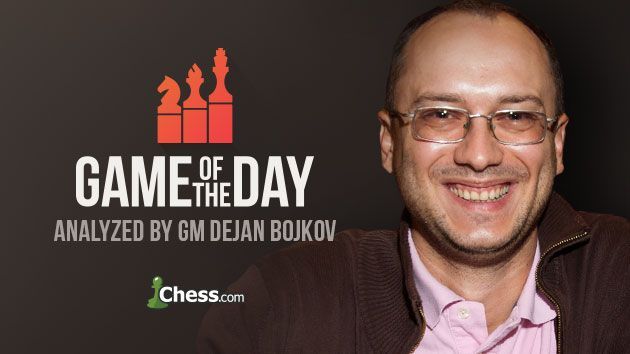
Jerusalem Grand Prix: MVL Clashes With Nepomniachtchi For Candidates Spot
Maxime Vachier-Lagrave and Ian Nepomniachtchi will face each other in the semifinals of the 2019 FIDE Grand Prix in Jerusalem. If the Frenchman wins, he qualifies for the Candidates' directly while to do the same, Nepomniachtchi needs to win the final as well, against either David Navara or Wei Yi.
On what was quite a tense day, Vachier-Lagrave reached the semifinals at the expense of Dmitry Andreikin, who wasn't without chances himself. The Russian GM, who was a finalist in the 2013 World Cup, found an interesting way to avoid his opponent's pet Najdorf (3.Nge2 and 4.h3!?) in the first rapid game, but MVL didn't shy away from complications either.
"We had a fresh position, and I think I had great chances," said Andreikin, who had specifically prepared this line for his opponent.
"I probably didn't react in the best way, but I created a mess, and at some point I did navigate better, but it was really back and forth," said MVL.
On move 18 Andreikin chose incorrectly, where computers give him a winning advantage. Vachier-Lagrave definitely dodged a bullet there, but his play in the remainder of the game was flawless:


In a must-win situation Andreikin managed to create an interesting second game as well, but Vachier-Lagrave stayed in control and eventually offered a draw in a winning position—an offer that couldn't be refused:

"Dima found some very nice resources at some point so it was a really, really tough match," said Vachier-Lagrave. The Frenchman now plays Nepomniachtchi, who defeated So in the second rapid game after holding the first to a draw.
"Once in a blue moon, I manage to [get] something out of the opening," the Russian GM said. "It was a very nice idea, and actually this 21…Bf3 22.Rf3 Re5 is a trap. I couldn't particularly remember because I didn't repeat this move 21...Bf3. The position is, of course, fine for Black, but this is very tempting, just to simplify the position, and since the f7-pawn is protected in, let's say, some tactical way, Black can easily opt for this. Then I was lucky to remember all the correct moves until 25.f4. I think it should be almost winning for White but, of course, it wouldn't be me if I didn’t make some mistakes."
As So pointed out himself, the decisive mistake was probably to go into the rook endgame. He called it "dead lost" afterward, and Nepo indeed won it quite smoothly:

The other semifinal will be played between Navara, who had already qualified the other day, and Wei. The Chinese player defeated Sergey Karjakin in Monday's longest tiebreak.
First, it was Wei who opened the score with the white pieces. Like Andreikin, he avoided theory straight away and went for 1. e4 e5 2. d4 exd4 3. Qxd4 Nc6 4. Qc4!? that seemed to backfire completely as Karjakin was much better very soon.
However, the Russian GM "forgot" to trade his knight on a2 for White's bishop, and that knight remained stuck in the corner while White won a pawn and brought his king to safety:

Karjakin then won on demand with the white pieces in a game where Black failed to develop his queenside:

In the first 10+10 game Wei struck again but this time with the black pieces. Karjakin was better in the endgame but misplayed it and then couldn't come back a second time.
As Grischuk had already pointed out during the first Grand Prix in Moscow, a rest day before the semifinal would be very logical—especially with so much at stake. But no, it's all gonna continue on Tuesday. Don't be too surprised if one standard game or even both will be short draws again.
All tiebreak games of round two
Previous reports:


